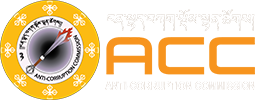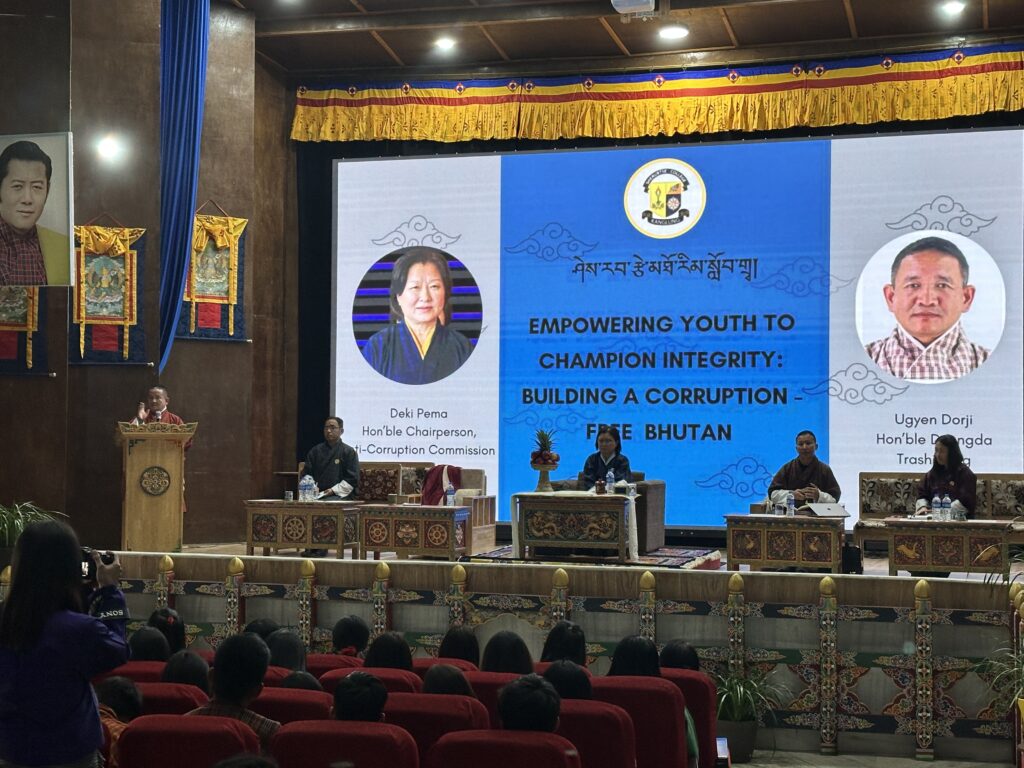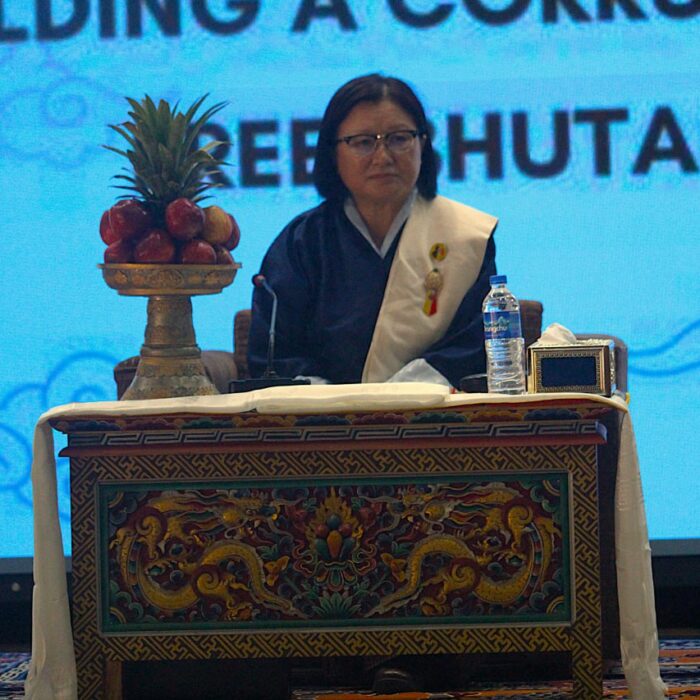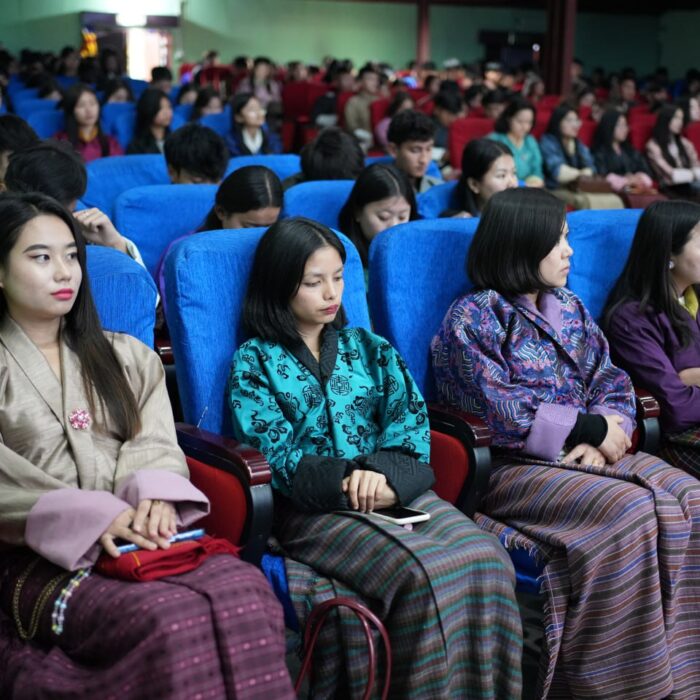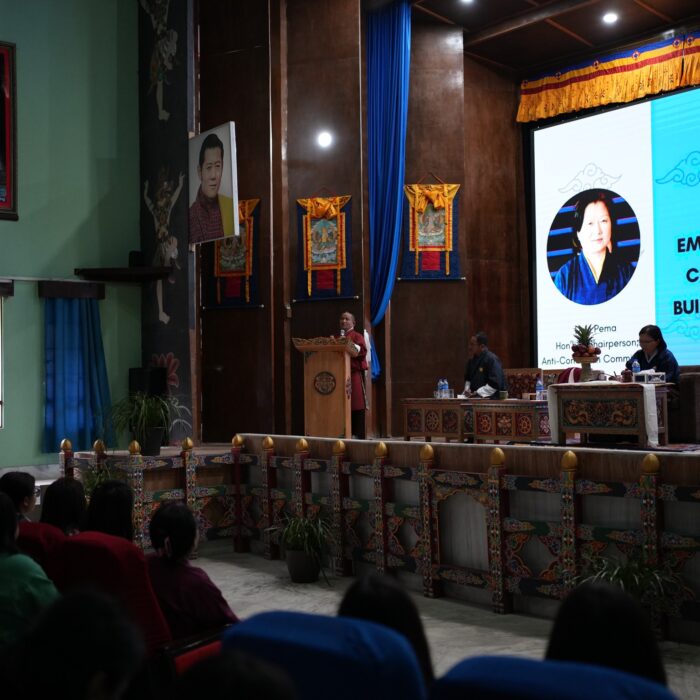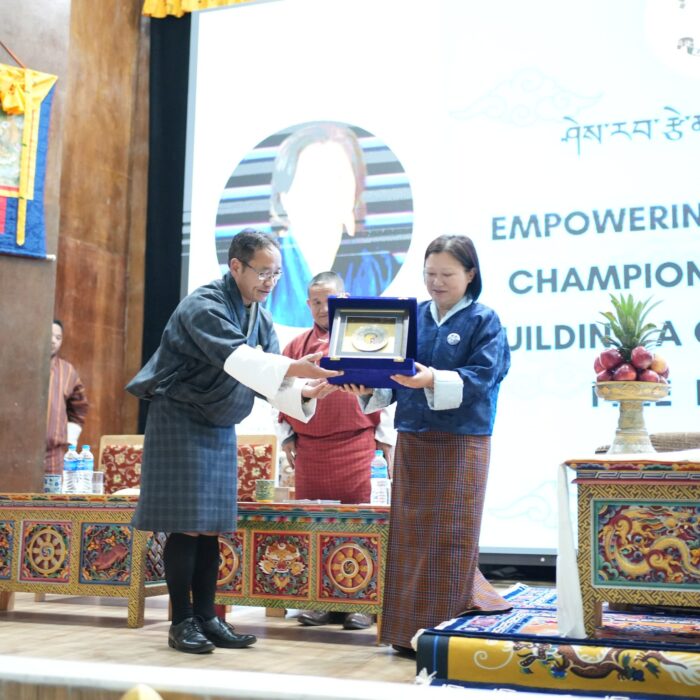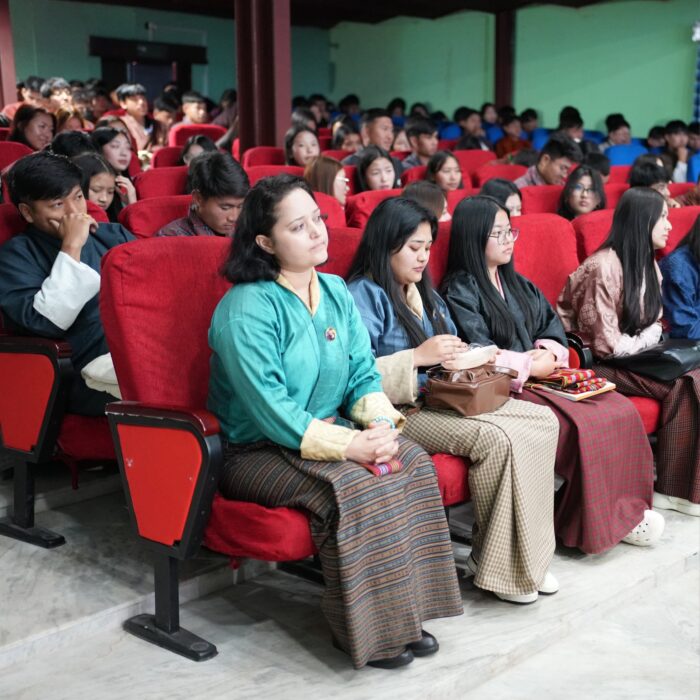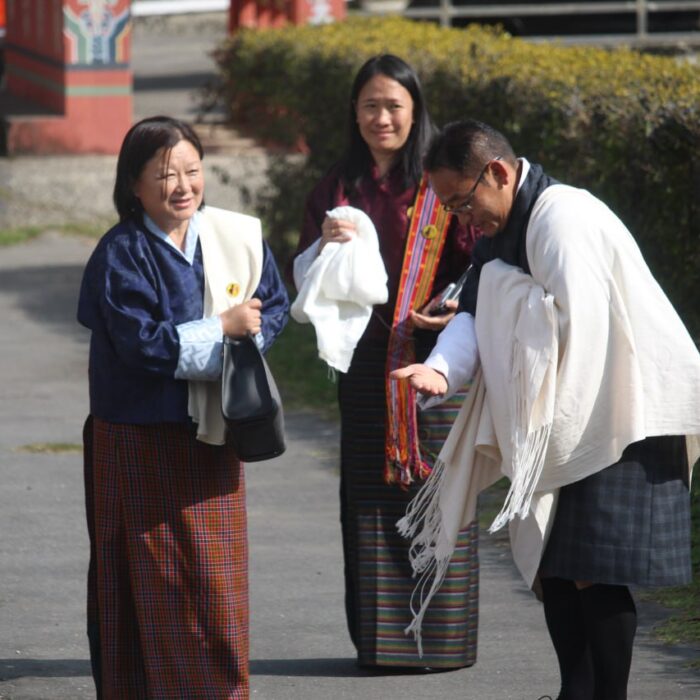On 24 February 2025, the Anti-Corruption Commission (ACC), led by the Chairperson, Hon’ble Chairperson engaged with third & fourth-year students as well as the student leaders of Sherubtse College under the theme “Empowering Youth to Champion Integrity: Building a Corruption-Free Bhutan”. Hon’ble Chairperson was accompanied by Dasho Dzongdag of Trashigang Dzongkhag Administration, providing diverse perspectives and inspiring the youth to actively contribute to a society founded on integrity.
During the session, using the model of Fraud Triangle, Hon’ble Chairperson introduced Pressure (financial or personal stress), Opportunity (a lack of oversight or weak controls), and Rationalization (justifying dishonest actions) as the three key drivers of unethical behavior in an organization or system. To further help understand the factors that enable fraudulent behavior, the Chairperson introduced the Fraud Diamond, which adds Capability (individual’s skills, ability, & position within an organization) as a fourth enabling factor. Further, she raised concerns about how unethical practices can become ingrained within the organizations through normalization, institutionalization, and socialization. Therefore, she cautioned students to remain vigilant as they transition into professional life, explaining how these processes shape workplace ethics. Normalization occurs when small ethical breaches gradually become accepted as standard behavior. Institutionalization further embeds these practices within organizational structures and policies, making them difficult to challenge. Socialization then perpetuates these norms by passing them on to new employees, reinforcing the idea that unethical behavior is an acceptable means to success.
When faced with any ethical dilemmas, the students were informed to first analyze such dilemma from the lenses of four different paradigms, such as truth vs. loyalty, justice vs. mercy, the short-term vs. long term, and the individual vs. community paradigms, and then apply different available tests such as Sunshine Test, Intuition Test, Moral Exemplar, Publicity, Legal Test (SIMPLe) for ethical decision-making.
Complementing the theories and practices of corruption and anti-corruption shared by Hon’ble Chairperson, Dasho Dzongdag shared insights into common ethical dilemmas encountered in the local government. He shared situations that require balancing short-term goals with long – term sustainability, managing the conflict between quality and quantity of services, and navigating the interests of diverse interest groups, among others. He emphasized that local governance requires a constant commitment to transparency, accountability, and fairness, as decisions made at the local level have a direct and lasting impact on citizens. His reflections served as a reminder of the importance of upholding strong ethical principles, not only in local governance but also in personal capacity, especially when faced with complex and often conflicting demands.
The Chairperson and Dzongdag not only encouraged the students, who represent the future of the country, to reflect on their personal values but also inspired them to embrace HIT principle; prioritizing Honesty over popularity, maintaining Integrity instead of seeking shortcuts, and valuing Truth even when it is inconvenient.
The engagement session was part of the ACC’s strategy to empower youth to champion integrity and become the change agents.
